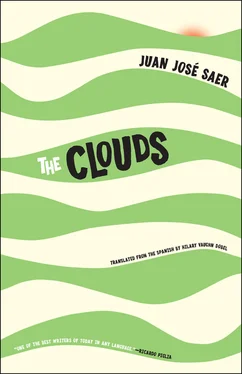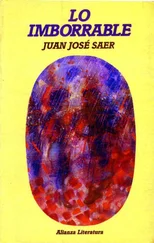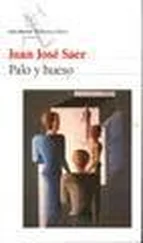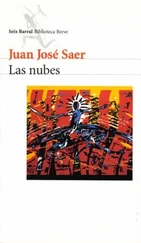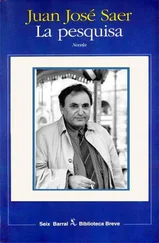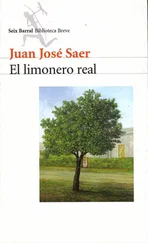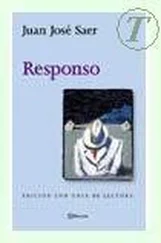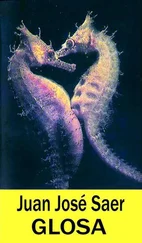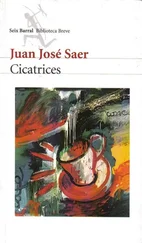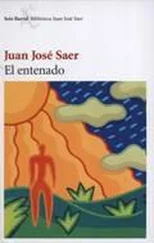In Dr. López’s study, the gardener’s story announced, in closing, the catastrophe that soon followed: One day they were surprised in the sacrilegious act on the chapel floor before the altar, and the affair, once the Holy Office tribunal took up the matter, ended in the same place it had begun. After much deliberation and against Sister Teresita’s obstinate contention that all acts committed had been ordained by Christ himself in Upper Peru in order to reestablish the unity of divine and human love that had been separated after the resurrection, the religious authorities ruled that Sister Teresita had lost her mind as the result of the violations and other repeated indignities the gardener had submitted her to; they put him in jail, where for several months he had been awaiting the trial that would surely condemn him to death. (Some time later, a letter from Dr. López informed me that, a few days before judgment took place, the gardener had managed to escape from prison, and, like so many others who, rightly or not, had accounts to settle with Justice, disappeared into the plains. I received the news with relief and rushed to convey it to the little nun who, as her only comment, poked the tiny index finger of her right hand repeatedly into my stomach, a form of congratulation or recognition, as if Augustín’s escape had been my work, and she approved with several slow nods.)
A private project during that professional trip had been, if my business allowed, to cross the Bajada Grande one day to visit the places where I had spent my childhood. As memories of my early years were no longer fresh, no emotional tie connected me to the far bank, for my family had returned to Spain upon my father’s retirement from trade the year before Las Tres Acacias was founded. Yet it warmed my passions to anticipate the idea of crossing the great river and descrying the cliffs falling sheer into the red-hued water, as I had done so many times with my father when we returned from sailing among the islands. Unfortunately, the very cause of my prolonged delay in the city expanded ad nauseam the labor required to set out on my excursion, spoiling my plan: That year, the usual winter rise in those southern-flowing rivers, normally substantial, was treacherous, barbaric, and enormous. Treacherous because from hour to hour, minute to minute, and for months, water levels rose continually, submerging the coastal lands imperceptibly, bit by bit, farther from the banks each time; barbaric because, despite their surreptitious growth, a sudden swell overflowing the limits of the floodplains would cover a vast territory all at once, destroying everything in its path, and disrupting the life native to what would have been dry land and displace it from the banks, upsetting the customs, the roots, and very livelihood of men, animals, and plants, torn violently up from their usual spot and scattered until they were deposited, with savage anachronism, in the most unexpected corners of the region; and enormous because, due to that long and steady rise, the water, clouded with the new soil that fed into its path and taking on an uncertain hue that varied by location, perhaps sulfurous yellow, reddish-brown, or blackened and struck through with green filaments, won the westerly lands to the point of engulfing the plain, however far as an observer might travel on foot or by horse, across the entire visible horizon.
The flood at once detained the patients we awaited from Córdoba and Paraguay and confined us to the city. Everything was disrupted: the roads, the postal coach, the transport of goods. Departure and arrival times, already uncertain, became fickle and arbitrary, if not outrageous. Certain items not produced in the immediate surroundings, such as sugar, tea, and wine, began to run short. The prescient Señor Parra had gathered a little of everything in a room that served as larder and storehouse, whose key was in the hands of a slave charged with all matters related to questions of food and cooking. Señor Parra explained that in having so many people depend on him — relatives, employees, and slaves — it was his duty to anticipate possible events well in advance and down to the most trifling details, and to avoid setbacks as they arose. In those years, the isolated villages, many leagues distant from one another, scattered across that wild and endless desert, exposed their inhabitants to an array of dangers at every turn, requiring them to be ever vigilant. (Today, friends have informed me that threats come not from the desert, and that terror is unleashed not by the unchained elements, but rather by the government.)
Beyond the simplest daily tasks and regular visits to my two patients, I was left with no other occupation in that enforced idleness but observation, reflection, and reading. That I might partake of this last activity, Señor Parra placed his library at my disposal, a library which, as I believe I have mentioned, was most varied and abundant despite the city’s isolation, and, as if this were not enough, and confirming the refinement of his character, he gifted me with six volumes of a French translation of Virgil, a poet for whom we discovered a mutual admiration, so that my reading of it, when time permitted, lasted until we finally sighted the snub, white building at Las Tres Acacias. For me, every challenge on our road is tied to a verse of Virgil, and to this very day the harsh sensations of travel and the subtle music of the verses bleed together in my memory, in a unique mingling that is mine alone, which will vanish from the world when I do. More than once I saw myself traveling the plain like Aeneas did the strange and hostile sea, and a deep emotion would overcome me when I glimpsed a fate for myself in the desert like that of Palinurus the helmsman who, startled from sleep, falls into the ocean, and his naked corpse is doom’d on shores unknown to lie . More than once I saw, more vividly than the dense and weighty things that surrounded me, the untimely pile of my bones gleaming white in the sun in some remote corner of the plain. But it is the fourth Bucolic that, among his short poems, remains my favorite to this day: the declaration of a golden age when so many catastrophes fly in the face of its unlikely coming, dependent not on the hero’s armed will, but on a child’s smile to the mother who bore him in her womb for nine heavy months; for that cheerful recognition of life, the poet promises the table of Jupiter and company of the goddess. And it is not irrational hope that gives rise to the vision: The new golden age will not be a prize or a conquest, but an undeserved gift from destiny and will come, not because men have won it, but because the Fates, someday, sometime, purely on a whim, will decree it.
He who has not seen, as I have, one of those lost cities of the plains on a rainy winter twilight when their first flickering lights begin to burn, with every visible object buried evenly beneath the double cloak of night and inclement weather — he does not know sorrow, though he might believe he has experienced it before. We were trapped by the flood, and the world’s prison doubled, reinforced by that steely ring of water. But for the Parra family’s affection, for the impassioned conversations with Dr. López and, above all, with Señor Parra, not one true sympathy tied me to anyone apart from the banal phrases and banal greetings exchanged as I passed the city-dwellers who were already growing accustomed to my daily walks. That solitary feeling intensified further when on bright mornings, farther down the leagues of islands and water that separated me from them, I could make out the hills of Entre Ríos where I had spent my childhood. But most of all, I missed the lively and stimulating company of Dr. Weiss, the long conversations at the table punctuated by constant sparks of his genius and humor; he was my true family, not because I renounce my kin, but because through him I discovered a new relationship, one that unites all those who, distinguished by their own traits that render dull the impositions of blood ties, look for new affinities outside those ties to understand and enrich these traits. And I can say that the only two moments of personal happiness I had during my stay in the city were the two long letters from the doctor, brought to me by the laborious detours of a most irregular post. In the first one particularly, the doctor explained that moving the patients could have been organized another way, a way not requiring my participation on the trip, but that he had chosen to send me so I might spend some time away from his side because, according to him, I was huddled too deeply in his shadow, and he wished me, as I carried out the risky and difficult task entrusted to me, to spread my own wings. Reading these generous lines, I was filled with pride and happiness, and I knew at last that the true teacher is not one who wants to be imitated and obeyed, but is capable of entrusting to his student, unaware until that moment, the very task he needs.
Читать дальше
